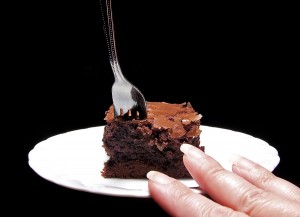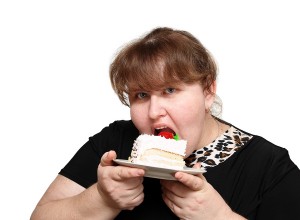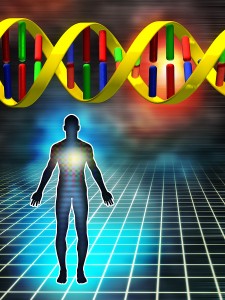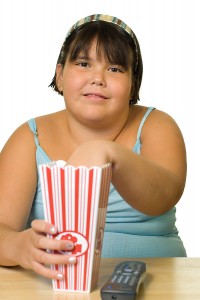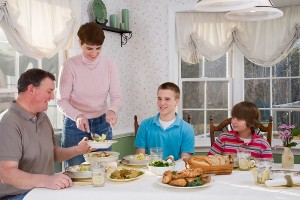Podcast: Play in new window | Download
Dr. Roger Gould is a psychiatrist with decades of experience in helping people resolve all types of psychological problems, including emotional eating. His focus in recent years has been trying to turn psychotherapy into more of an education process.
He was kind enough to allow me to interview him recently. During our talk he discussed the causes of emotional eating and his on-line program at ShrinkYourself.com that has been used by over 30,000 sufferers.
He doesn’t like to use the words, “eating disorder” to describe people’s difficulties with eating. Rather, he agrees with me that emotional eating is a coping strategy, an attempt to hide from negative feelings that we don’t want to feel. He says that our old self-image (which I contend is a function of your self-esteem beliefs) makes many of us feel helpless, and then we turn to eating to escape from that feeling.
Listen to the podcast or read a transcript of our interview.
Morty: Hi! This is Morty Lefkoe with Podcast #1 on our Emotional Eating Report blog. We are going to be having interviews every week with noted authorities in the field, people who have a lot of experience and knowledge with emotional eating and other types of eating disorders.
The purpose of this weekly broadcast is to give you additional information, so you can understand what is the problem of emotional eating. Where does it come from? What can you do to solve it?
We are very fortunate today to have as our guest Dr. Roger Gould. Roger has a lot of background in this field. He has a lot of experience. And I think that as you listen, you will discover a lot of useful information that will help you deal with this issue. Roger, thanks for being here.
Roger: You’re very welcome. Thanks for inviting me.
Morty: Could you give us just a little bit of your background so people know what your experience is in the field?
Roger: Yes, sure. I’m a psychiatrist and psychoanalyst. I used to be the head of Outpatient Psychiatry at UCLA. I’ve written a couple of books. One of them called Transformations, which is about growth and change in adult life. We look at the life cycle and how people have to adapt and change and learn as they go on.
Another book which is more current for our topic today is called Shrink Yourself, which is all about what one has to do to end the emotional eating. We also created a web site called http://shrinkyourself.com, which is about the same subject but takes a person through twelve weeks of very personalized, interactive software that helps them immerse themselves in all the steps that one has to go through in order to get rid of this addiction.
Morty: Let’s start at the beginning. You’re saying you seem to have a general background in psychiatry, not just eating. What is it that first got you interested in the area of eating disorders?
Roger: We developed some software to help people learn about themselves. We used it in CIGNA health plan and psychiatric hospitals and community mental health centers. Along the way, one of the places that we used it was a hospital setting for both eating disorders and substance abuse disorders.
We developed a very specialized set of programs for that. That’s what got me interested originally, and then I did some consulting work at the Pritikin Institute in Santa Monica and worked with obesityhealth.com and began to get very involved in this important and difficult issue which is as you know, Morty, which is everybody eats for comfort to some degree. It’s very easy to flip over and eat too much for comfort too often. Before you know it, you’re in a vicious cycle and it becomes a preoccupation to your mind.
Morty: How would you define or describe the flip over point? You say most people eat for comfort to some extent. What’s the difference between somebody who does that who does not have an eating disorder and somebody who does?
Roger: I don’t even like to use the word “eating disorder.”
Morty: Okay. How would you describe it?
Roger: What happens is that people who have gone long periods of time without eating to excess with emotional eating suddenly start having a lot of negative feelings, which seems overwhelming. They feel powerless. Eating then seems to be the only way they feel better, they can get comfort.
It’s not true but it feels that way and very strong, so they regress into it. A number of people go in and out of their emotional eating episodes and go for long periods of time. We have treated over thirty thousand people online and have a lot of data. There are so many people who said, “I didn’t have this problem until after I got married.”
Another person said, “I didn’t have it until after I had my first child.” Women didn’t have it until they were menopausal. Different times in life. Some people have had the difficulty since they’ve been children. It becomes a way of life and become part of an identity.
Morty: Do you find that there is generally a single stimulus that gets the emotional eating started or does it seem to be something gradual where you can’t pinpoint the exact cause?
Roger: It’s just like everything else in the human mind. It’s so complicated. You can’t really find a single cause. You can’t find a track by which it happens.
Again, some people grew up in families where the eating habits were such that overeating was promoted on a regular basis. They were younger. They exercised. It didn’t affect their weight.
They got older. They didn’t exercise. They kept the same eating habits and they started gaining weight. They had a look back and they will see what’s going on here.
Again, it can happen in various ways. There are a lot of mechanisms for it to happen. The most important thing is really how you get out of it.
Morty: Okay. I want to ask one more question before we get to that. Would you say that in all cases where there is a problem, it is a problem of emotional eating? It is eating for emotional reasons rather than for hunger?
Roger: Yes. I would say there are probably 2 or 3 or 4 percent at the most of people who are overweight or obese with a thyroid or hormonal problem or some biological problem. But when you see the people who had been hundreds of pounds overweight lose their weight once they stop their emotional eating, it’s hard to say that it was initially a biological issue when the cure is a psychological cure.
Morty: Got it. There is some emotion that seems to drive people to eat.
Roger: I would say it slightly differently. What drives people to eat is the fear of their own emotions.
Morty: Got it. Okay. Eating then is the escape or the compensation for emotions they don’t want to feel.
Roger: That’s right. They’re afraid to face. If you start from that premise, people tell you all the time about what they’re avoiding. They’re avoiding feeling overwhelmed.
They’re avoiding their own anger. They’re avoiding their prediction about how their life is going to turn about badly or a relationship is not going to work or some sort of dark or catastrophic image. If they think any more about it or feel any more, something terrible is happening or is about to happen, which makes them feel powerless. Powerlessness is really a key to the whole thing.
I like to use an example, I think I quoted it in my book, of a very intelligent forty-ish woman who was at the shopping mall with her sixteen-year-old daughter and her sixteen-year-old daughter’s friend. The kids were being very bratty.
She couldn’t control them. I said, “What did you do?” She said, “I ate six doughnuts.” I said, “Why did you eat six doughnuts? Why didn’t you deal with your bratty children?”
She said, “I didn’t know what else to do?” At that moment in time, she was overwhelmed by her feelings: she said she was powerless, helpless, had no choice, had no alternative, and all she could do was eat to get rid of the frustrated angry feelings that she didn’t want to feel. I call that food transfer. It takes you out of where you are right now.
It takes you out of your reality. It’s very tempting. All the problems go away. It’s a quick fix. An hour or two later you’re still angry at yourself. You probably eat more to get yourself some comfort from your…
Morty: From your anger. Yeah. I think we got a good sense of what it is. What is the approach you’ve used if people use eating as a way to escape these negative feelings which occur for almost all of us on some irregular basis? What do we do about it?
Roger: The simple answer is people have to learn how to engage and process their feelings and prove to themselves that their feelings are not dangerous and that they’re not helpless. The only way you can do that is you have to go through a process which is somewhat like the process of psychotherapy, but it’s also like the process of personal development which was the subject matter of my first book on transformation. Which is how do you learn the new skill of adulthood which is facing problems even if it hurts for awhile in order to keep your mind alert enough to work on them to solve them.
They don’t go away if you just eat for comfort.
Every time you eat for comfort, you derail your own adult thinking. You temporarily shut down the best part of your mind. It’s a self-defeating process and you’re spaced out much longer. That’s what has to be reversed.
The question is: how do you reverse it? Step by step. Point by point. That’s where our computer software comes in, and that’s where the book comes in. We take people from identifying what are the triggers.
What are the sore spots or the sensitive areas of their lives? What are the feelings that have been aroused in a particular concrete incident that they are observing? What is the feeling that they’re about to feel and what are they afraid of in that feeling? How can they sort that out and get down to the real truth, which is there’s nothing to be afraid of their feelings? Because their feelings are natural information systems that are pointing them towards what they need to deal with—their life, their responsibility.
Morty: I can see how therapy does that. How have you managed to put that into an online course?
Roger: It took us about twenty years. It started again when I left UCLA and had a foundation grant to try to convert psychotherapy into an educational system to marry that into our work on adult development.
Everybody has this angry spot but it’s like they’re weighed down to various degrees. Everybody has an old negative self-image that they carry around with them from childhood. That image often is a role that they played in their family. It usually has a label attached to it. It has rules of what you can do or should do.
It holds you back—that image. That self-doubt image is the thing that makes you most helpless every time you engage it. If you’re about to try to make an improvement in your life or change your behavior or go back to school or speak up or when you’ve been too mousy before or too much of a people-pleaser and you try to make that change, you run into the ideas that people aren’t going to like you anymore. They’re going to see through you.
This is a very familiar scenario of self-criticism, self-doubt, and self-sabotage. That’s really what makes people feel most helpless to be able to do. A lot of what you’re feeling is all about is leads to problems. It leads to interpersonal friction. Those all dig deeper into this whole self-doubt system.
We take the person through twelve weeks and actually take him through a transformation process in which they begin to feel these things, not just read about them. We developed a series of observational exercises to help people see that and to learn from the deeper reasons why some people, who have been obese for a long period of time starting back in childhood, hold another series of reasons to hold on to emotional eating, which is too much get into at this point of the interview.
Morty: What would be the best place for people to find out about this course you have, and to sign up for it if they’d like?
Roger: It’s www.shrinkyourself.com. They can remember the double entendre that you’d shrink yourself.
Morty: S-H-R-I-N-K-Y-O-U-R-S-E-L-F.com. shrinkyourself.com. They can get information about the program. If they like it, they can sign up for it.
Roger: There are various tools that they can use to help them think about it. We have a thing called Emotional Eating Diagnostic that helps them understand in a deeper way their emotional eating process. We have hundreds of articles that I have written and blogs. They’ll see videos of people who’ve gone through the program.
Morty: You say you’ve had thirty thousand people go through this program?
Roger: Thirty thousand people going through the program.
Morty: Congratulations! That is very exciting.
Roger: We’re very excited about it because we get unsolicited testimonials every day. There’s a whole page of them. The most gratifying is people say, “I’ve had this urge. I’ve been doing this yoyo dieting. I’m going to therapy. Nothing has really helped me understand it as well as this.”
For the great majority of people, that urge that has been such a demon in their life, spontaneously seems to go away around the sixth session, more than I anticipated. But I keep on hearing it over and over again, and it’s very heartening.
Morty: It’s a ten-session course?
Roger: It’s twelve sessions. Twelve weeks.
Morty: Twelve weeks.
Roger: Three months. It’s pretty extensive.
Morty: How much do you charge to the course?
Roger: Yeah, we charge for the course. Because of the bad economics in the world right now, we’ve actually just cut our price in half so that more people can use it. So many people have been telling us. The whole twelve weeks is only $59.95—$60. Five dollars a week.
Morty: That’s very, very small price to pay for getting rid of a problem that has wrecked havoc in literally millions and millions of lives. People have spent more than that on their dieting tools and on their dieting books.
Roger: Or more than that each day on the junk food.
Morty: That’s right. Obviously, some people have been in therapy for years and years. Therapy in general doesn’t seem to work on emotional eating, at least according to what I’ve read and the people I’ve talked with.
Roger: I think that therapy is always useful, but I do believe that by using the techniques that we have, we have such strong data. We have made changes along the way. I think we have actually discovered the focus that most therapists don’t have. Even when I see patients with this kind of problem, it’s very easy not to be disciplined and keep the focus and understanding for each episode why were you feeling helpless. What was really going on? Don’t you really have choices? Why can’t you really handle this in a better way? We’re actually developing a thing called Hunger Coach, which soon we’ll have on the site for people to use. It’ll be free for them to use.
Morty: Thank you so much for your time. I think this is very, very useful and valuable information for anybody who is concerned with the issue of emotional eating. I plan to go and check out the site and try to learn some more myself about your particular method and approach.
Again, for people who want to find out more about your program, Roger. It is shrinkyourself.com. It is a twelve-session course for only $59.95. You can read more about the course to understand what the principles are and sign up for it if you choose to do so.
Roger, thank you so much for your time today. I look forward to getting this material out to all of our subscribers as soon as possible. Thank you for the contribution you’re making to so many people. It’s a terrible problem out there.
I am happy that there are people in the world who are doing their best to help. Obviously, you’ve helped at least thirty thousand and probably will help many thousands more by the time you’re done.
Roger: Thank you. Thank you, Morty, for this opportunity.
Morty: Okay.

